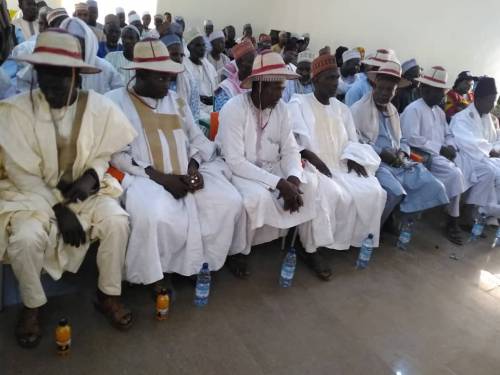News
We’re not militia, religious organisation, says Miyetti Allah

The Miyetti Allah Cattle Breeders Association of Nigeria (MACBAN) has distanced itself from claims portraying it as a militant or religious organisation, stressing that it remains a socio-economic body focused on legitimate trade advocacy.
MACBAN President, Baba Othman-Ngelzarma, made the clarification on Sunday in Abuja during a press briefing addressing the U.S. House Resolution (H. Res.) 860 and related developments.
He emphasised that the association does not “support, condone, harbour, finance, or protect any form of criminality, extremism or violence,” noting that MACBAN has never operated as an armed or violent group. According to him, the organisation “condemns in the strongest possible terms banditry, cattle rustling, kidnapping, terrorism, or any crime whatsoever.”
Othman-Ngelzarma stressed that anyone involved in criminal activity, whether a pastoralist or not, “acts alone” and must be held accountable under Nigerian law.
“Our membership spans all states of the federation and contributes significantly to Nigeria’s food security, rural economy, and national Gross Domestic Product (GDP),” he said.
He added that MACBAN is a non-political and non-religious association committed to promoting pastoral development, modern livestock practices, and peaceful relations between herders and farmers. “MACBAN’s identity is founded on appreciation, service, and community development—not violence or confrontation,” he said, warning that linking the association to extremist elements distorts its mission and values.
The MACBAN president reaffirmed the group’s support for peace efforts and security initiatives across the country. He cautioned against profiling pastoralists, arguing that criminals should never be mistaken for law-abiding herders. The peaceful majority, he said, must not suffer because of “a few violent individuals who exploit pastoral identity.”
Addressing concerns raised in the U.S. House Resolution H. Res. 860, Othman-Ngelzarma acknowledged the humanitarian motivations behind the document but insisted that aspects of it offered “an incomplete and misleading picture of pastoral communities in Nigeria.”
He called for a more balanced and factual understanding of pastoral realities, urging that any international intervention be guided by accurate context rather than stereotypes. He appealed to the U.S. Congress to amend the resolution to “remove all mention of MACBAN,” advising lawmakers to engage credible local groups, security agencies, civil society actors, and evidence-based assessments that also reflect losses suffered by pastoral communities.
According to him, the U.S. should prioritise long-term solutions such as grazing reserves and land restoration.
Highlighting the sector’s importance, Othman-Ngelzarma said Nigeria’s pastoral industry remains integral to national economic stability and cultural heritage and deserves support rather than stigmatisation.
“MACBAN reaffirms its dedication to peace, justice, and national unity,” he said. He added that the association will continue to collaborate with security forces, development organisations, and government agencies to address the root causes of conflict and promote safe coexistence between herding and farming communities.
He urged Nigerians and international partners to support those working tirelessly to restore peace, including “security operatives, community mediators, traditional rulers, and pastoral leaders.”





















